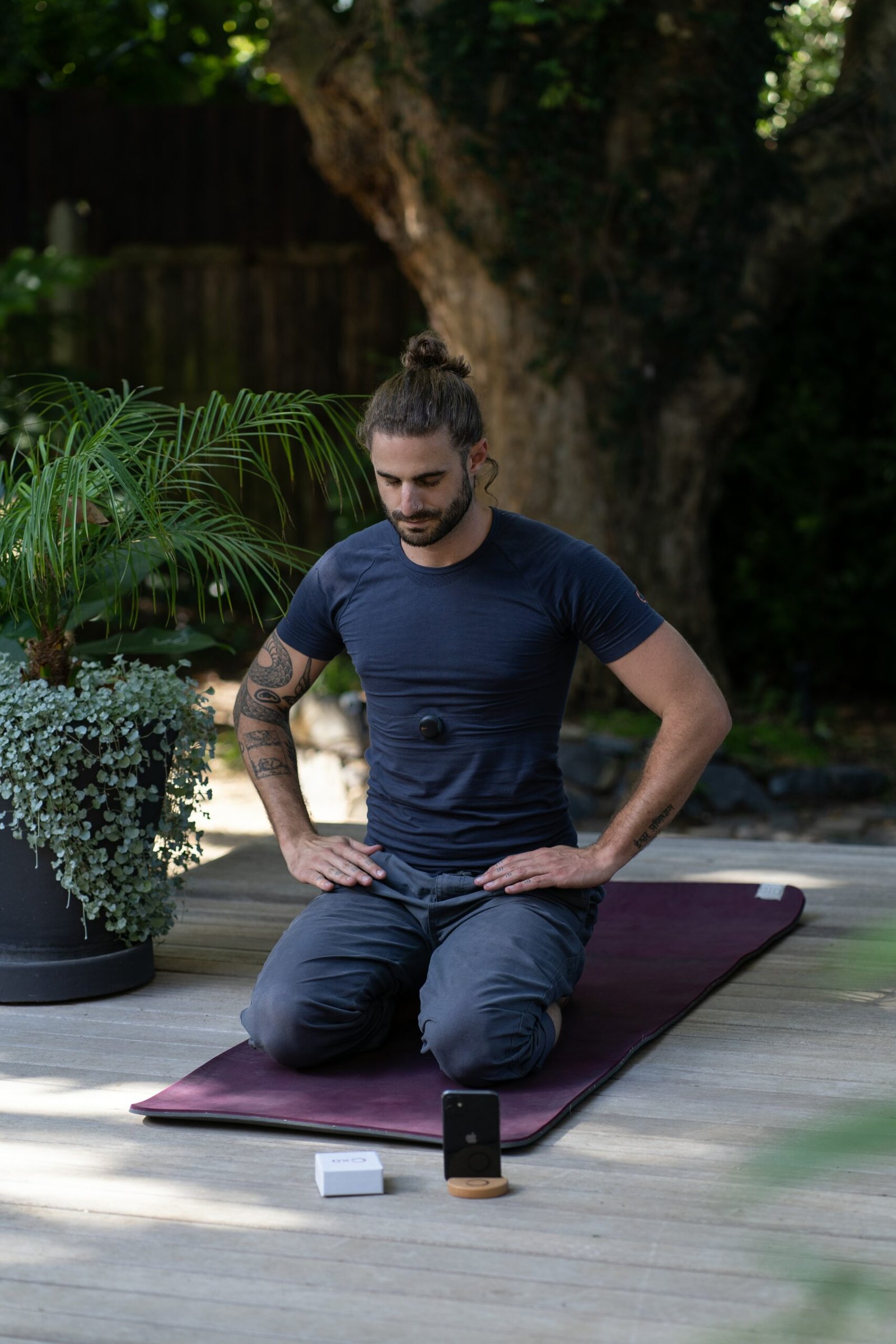
The Importance of Mental Health Tracking
In today’s fast-paced world, monitoring mental health is becoming increasingly essential. The pressures of daily life, coupled with the complexity of modern social interactions, can contribute to heightened levels of stress and anxiety. By engaging in mental health tracking, individuals can cultivate a greater awareness of their emotional states, which is a crucial step towards better mental health management. This awareness acts as a foundation for identifying patterns in mood and behavior, allowing people to respond proactively to fluctuations in their emotional well-being.
Tracking mental health can take various forms, such as journaling, engaging with dedicated apps, or participating in therapy. Each method serves the purpose of self-reflection and facilitates a deeper understanding of personal triggers and stressors. For example, many mental health apps are designed to help users log their feelings, thoughts, and behaviors. This data can illuminate trends that might otherwise go unnoticed, allowing individuals to make informed decisions regarding their mental health strategies.
Furthermore, regular self-monitoring can lead to a reduction in anxiety. Understanding one’s emotional landscape can provide reassurance and clarity during tumultuous times. When individuals recognize the signs of anxiety or distress earlier, they can implement coping strategies more effectively, thereby enhancing their overall emotional well-being. A pro-active approach to mental health, driven by consistent tracking, empowers individuals to seek solutions before issues escalate.
In essence, mental health tracking is not merely a tool for self-observation; it is an integral component of a comprehensive approach to managing mental health. By fostering awareness and enabling self-care, individuals can pave the way for positive change and enhanced emotional resilience. This ongoing commitment to self-improvement speaks volumes about one’s dedication to maintaining mental health and can ultimately lead to more fulfilling life experiences.
How Mental Health Apps Work
Mental health apps have gained significant traction in recent years as essential tools for individuals seeking to monitor and enhance their mental well-being. These applications offer various functionalities aimed at assisting users in tracking their moods, managing stress levels, and documenting daily activities. The ease of access to such features has rendered mental health support more approachable, especially for those who may be hesitant to seek traditional therapeutic avenues.
One of the core functions of mental health apps is their ability to facilitate mood tracking. Users can input their emotions throughout the day, which helps them identify patterns and triggers associated with their mental states. This self-monitoring aspect is vital as it empowers users to take an active role in understanding their emotional health. Additionally, many apps provide guided activities or exercises aimed at stress management, such as meditation, breathing exercises, and cognitive behavioral techniques. This can lead to a more proactive approach to mental health care.
The technology underlying these applications often incorporates artificial intelligence (AI) and analytical tools. AI algorithms can analyze user inputs over time, providing personalized insights that help users pinpoint factors contributing to stress or anxiety. For instance, by reviewing past entries, an app may reveal correlations between specific events and changes in mood, thereby fostering greater self-awareness. Moreover, charting features allow users to visualize their mental health journey, making it easier to identify trends and measure progress over time.
In utilizing these tools, mental health apps not only foster a sense of engagement in the therapeutic process but also present an opportunity for enhanced self-understanding. By leveraging technology effectively, these applications pave the way for improved mental health outcomes through simple yet impactful daily practices. As users integrate these insights into their lives, they may find new pathways toward greater mental resilience and well-being.
Criteria for Selecting Mental Health Apps
When considering the selection of mental health apps, several essential factors must be taken into account to ensure users choose an application that best meets their individual needs. The user interface design of the app is paramount, as a clean, intuitive layout promotes ease of use. A confusing or cluttered interface can deter users, especially those who may already be struggling with mental health issues. Therefore, it is beneficial to look for applications that prioritize user experience through straightforward navigation and appealing aesthetics.
Another significant criterion involves the features available within the app. Many mental health apps offer various functionalities such as journaling, breathing exercises, mood tracking, and guided meditations. Depending on personal preferences and specific mental health goals, the choice of app can vary widely. For instance, someone looking to manage anxiety may prefer an app that emphasizes breathing techniques, while an individual interested in tracking mood fluctuations might prioritize mood logging capabilities. Assessing these features in relation to one’s mental health objectives is crucial for selecting the most suitable application.
Furthermore, the privacy policies of mental health apps must not be overlooked. Given the sensitive nature of the information shared within these platforms, users should ensure that their data is protected and that the app complies with relevant privacy regulations. Transparency regarding data handling and security can help build user trust.
Lastly, it is beneficial to explore user reviews and testimonials, as they provide valuable insights into the effectiveness and usability of the app. Positive feedback or constructive critiques can guide potential users in making informed decisions prior to committing to a specific mental health app.
Top Apps for Mental Health Tracking
In today’s fast-paced world, mental health tracking apps have become crucial tools for individuals seeking to monitor their emotional wellbeing. Here is a curated list of some of the best mental health tracking applications that are available across various platforms, each with unique features that enhance user experience.
Headspace is a widely recognized app that offers guided meditations, mindfulness exercises, and sleep aids. Its user-friendly interface allows individuals to choose from a variety of topics, including stress, anxiety, and focus. Headspace is compatible with both iOS and Android devices, making it accessible to a broad audience.
Moodpath is an excellent option for those looking for a structured approach to tracking their mental health. The app provides users with a mood tracker and mental health assessments, allowing individuals to gain insight into their emotional patterns. Moodpath also generates reports that can be shared with mental health professionals, supporting more informed treatment options. It is available on both iOS and Android platforms.
Youper serves as a personal AI therapist, helping users navigate their feelings and emotions through a conversational interface. The app utilizes evidence-based techniques like cognitive behavioral therapy (CBT) to improve users’ mood and mental resilience. With progress tracking and mood assessments, Youper offers valuable insights into emotional trends and habits. This app is available on both iOS and Android devices.
For those interested in a less conventional approach, Sanvello integrates therapy techniques with wellness tools. Its features include mood tracking, guided meditations, and a community support forum. With a focus on evidence-based practices, Sanvello supports individuals dealing with various mental health challenges. This app is also compatible with iOS and Android.
Lastly, Woebot introduces a chatbot that utilizes principles of CBT to facilitate real-time conversations about mental health concerns. Users can engage with Woebot for advice and coping strategies, making mental health monitoring both accessible and informative. The app is available on iOS and Android platforms.
These mental health tracking apps provide individuals with valuable resources and tools for effectively monitoring their emotional wellbeing. Each offers unique features that cater to different needs, making it easier to incorporate mental health practices into daily routines.
User Experiences and Testimonials
In the realm of mental health, user experiences play a crucial role in determining the effectiveness and usability of various applications. Many individuals have reported significant benefits from utilizing these tools, while others have faced challenges that shaped their journey towards better mental health. For instance, Sarah, a 28-year-old teacher, began using a mindfulness app during a particularly stressful semester. She shared, “Incorporating short meditation sessions into my daily routine helped me regain control of my anxiety. I could feel the weight lifting off my shoulders each time I practiced mindfulness.” Sarah’s experience illustrates the potential of apps to facilitate emotional regulation and provide relief, showcasing how effectively they can integrate into daily life.
Conversely, there are users like Mike, a 35-year-old software engineer, who encountered hurdles with mental health applications. “I downloaded several apps hoping to find motivation and consistency. However, some interfaces were overwhelming, making it hard for me to navigate and utilize the features effectively,” he explained. Mike’s feedback highlights a common challenge many users face—app usability. These user insights emphasize that while mental health apps have the power to foster improvement, their design must cater to diverse user needs for optimal effectiveness.
Furthermore, testimonials from users often reveal the communal benefits derived from these apps. Alex, a college student, remarked, “Using a mood tracking app allowed me to identify triggers in my patterns. Sharing my insights with friends further strengthened our support system.” Such stories underline the sense of community and shared experience fostered by these tools, making users feel more connected in their mental health journeys. The varied experiences underscore the importance of user feedback in refining these applications, potentially leading to better mental health outcomes for diverse users across the spectrum.
Integrating Mental Health Tracking into Daily Life
In today’s fast-paced world, integrating mental health tracking into daily life requires a structured and mindful approach. One effective method is to set aside specific time for reflection, allowing individuals to review their thoughts, emotions, and behaviors consistently. This can be a few moments during the day, perhaps in the morning or before bedtime, to assess one’s mental state and consider any patterns or triggers that may arise.
Using reminders can also enhance this practice significantly. Setting alarms or notifications on your device can prompt regular check-ins throughout the day. These reminders serve as essential cues, encouraging individuals to pause and engage with their mental health. This is particularly useful for those who lead busy lives or often lose track of time in their daily activities.
To foster a habit, consistency is key. Daily or weekly tracking can be implemented through journaling, utilizing mobile apps, or maintaining a simple spreadsheet. Record moods, stress levels, or any significant events, allowing for a broader understanding of mental health trends over time. This consistent logging can illuminate areas requiring attention and help prioritize well-being effectively. The combination of routine reflection, reminders, and regular tracking can significantly improve one’s mental wellness journey.
Making self-care a priority is transformative. By integrating mental health tracking into daily routines, individuals may find they cultivate a deeper connection with themselves. This practice encourages greater awareness of emotions, leading to more effective coping strategies, reduced anxiety, and overall improved mental health. Ultimately, the aim is to foster an environment where monitoring mental health becomes a natural part of daily life rather than an afterthought.
Challenges and Limitations of Mental Health Apps
The proliferation of mental health apps has introduced valuable tools for individuals seeking to monitor and enhance their mental well-being. However, the reliance on technology can present several challenges and limitations that users should consider. One prominent concern is the risk of over-dependence on these digital tools. While mental health applications can offer immediate support and resources, they may inadvertently lead users to prioritize virtual interactions over real-life connections, potentially exacerbating feelings of isolation and detachment.
Data privacy is another significant issue associated with mental health apps. Many applications collect sensitive personal information, which raises concerns regarding how this data is stored and used. Users may unknowingly expose themselves to potential breaches of privacy or misuse of their information by third-party entities. Therefore, it is imperative for individuals to thoroughly review privacy policies and opt for apps that prioritize safeguarding user information.
Furthermore, the landscape of mental health resources available on these platforms varies widely in quality and credibility. Users may fall victim to misinformation or encounter content that is not evidence-based, leading to confusion or harm instead of the intended benefit. This situation calls for users to engage critically with the material presented on these apps, seeking evidence-supported practices and consulting professionals when necessary. It is essential to recognize the limitation of these tools in complex mental health situations and not solely rely on them for diagnosis or treatment.
In conclusion, while mental health apps can serve as beneficial adjuncts to traditional therapeutic practices, it is crucial for users to remain discerning and mindful of the challenges that accompany their use. Balancing technology with professional guidance and personal connections is essential for a holistically healthy approach to mental well-being.
The Future of Mental Health Technology
The landscape of mental health technology is poised for transformative advancements, driven by innovations such as augmented reality (AR), virtual reality (VR), and artificial intelligence (AI). As researchers and developers continuously explore these fields, the integration of these technologies into mental health apps offers an exciting glimpse into a more interactive and personalized experience for users. This evolution aims to not only improve engagement but also enhance the effectiveness of interventions designed to support mental well-being.
AR technology, for instance, holds promise for creating immersive environments where individuals can confront their fears or practice mindfulness. By simulating real-world scenarios in a controlled space, users can engage in therapeutic exercises that may help them to manage anxiety, build resilience, or develop coping strategies. The potential for real-time feedback will drive an even deeper engagement, allowing individuals to monitor their responses and make adjustments as needed.
On the other hand, VR technology is already being harnessed to treat conditions such as PTSD and phobias by exposing users to triggering stimuli in a safe setting. As VR becomes more sophisticated, it is expected to provide users with tailored therapeutic experiences that reflect their unique challenges and treatment needs. This personalized approach may significantly increase the effectiveness of traditional therapies.
Moreover, the role of AI in mental health technology cannot be overstated. With the capacity to analyze vast amounts of data, AI can enable mental health apps to provide personalized recommendations and predictive analytics that improve user outcomes. By continually learning from user interactions, AI-powered tools could evolve to offer real-time interventions, ultimately paving the way for more efficient mental health management.
As ongoing research delves deeper into combining these technologies, the mental health sector stands to benefit significantly. Continued investment in innovation will likely yield tools that not only enrich the user experience but also facilitate more profound and impactful mental health strategies in the future.
Resources for Further Exploration
For individuals seeking to deepen their understanding of mental health and the various applications available for its enhancement, a variety of resources exist. Exploring these materials can significantly contribute to one’s mental wellness journey and provide broader insights into the field of mental health.
**Websites**: The National Alliance on Mental Illness (NAMI) offers a comprehensive resource for information on mental illnesses, treatment options, and support networks. Another excellent resource is Mental Health America (MHA), which features valuable tools, screening tests, and educational materials aimed at promoting mental health awareness. The Anxiety and Depression Association of America (ADAA) is also notable for its focused information on anxiety and depressive disorders.
**Books**: Several books can provide substantial knowledge and strategies on mental health. “The Body Keeps the Score” by Bessel van der Kolk is a highly regarded book that explores trauma’s impact on mental health and effective treatments. “Lost Connections” by Johann Hari offers insights into the societal factors influencing depression, while “Mind Over Mood” by Dennis Greenberger and Christine A. Padesky serves as a practical guide for cognitive behavioral therapy techniques.
**Podcasts**: Mental health podcasts can also be an engaging way to gain insights and personal stories. “The Mental Illness Happy Hour,” hosted by comedian Paul Gilmartin, delves into the realities of mental health challenges and the importance of humor in tough discussions. “Therapy Chat” focuses on the therapeutic process and features insightful conversations with experts in the field.
**Online Support Groups**: Platforms like 7 Cups and BetterHelp provide forums and chat rooms for individuals seeking community support. These groups create a safe space for sharing experiences and gaining encouragement from others who understand common mental health struggles.
Engaging with these resources can empower individuals to take proactive steps in managing their mental health and utilizing apps effectively.

